
I was recently engaged in a conversation with a very close friend about her fear of conversion to Catholicism. What seems to be holding her back is the difficulty of knowing that she will be targeted by non-Catholics, particularly those that are belligerently anti-Catholic. While her husband desires union with the Church, she hasn't shown much interest, yet she is already being targeted. She related to me that not long ago while sitting in a coffee shop, a young man (apparently one of the anti-Catholic, evangelical types) began a friendly conversation and asked where she attended church. She explained to him that she had been attending a Catholic church because her husband was converting. The man responded, "Don't let the devil take you out of the Kingdom of God."
This raises a good question: What exactly is the Kingdom of God and how do we recognize it when we see it? Are we sure we're part of it? The next few posts will deal with this question, and I intend to tap into the wisdom of Frank Sheed in order to do so.
Before answering these questions, full disclosure is in order. I believe the Universal Church, that is, the Holy Catholic Church to be His Kingdom, and hopefully, these next few posts will clarify why I believe that to be so.
If we ever wish to understand something we must first ask two questions: What is it? What is its function?
Before we treat these two questions regarding the universal church we should get a couple things out of the way. First, what does the term universal have to do with the term Catholic? Second, why do we call our church Catholic?
The first question deals with the relationship between the word ‘universal’ and the word ‘Catholic’. The relationship is this: Catholic means universal. ‘Catholic’ is the Greek and ‘universal’ is the Latin, both meaning the same thing. In both is the element of oneness, that is, all things being united as one. This should logically lead to another question: What do we mean by ‘all things’? What is it specifically? Our Lord gives us the answer.
Mt. 28:19-20: “Go therefore and make disciples of all nations, baptizing them in the name of the Father and of the Son and of the Holy Spirit, teaching them to observe all that I have commanded you; and behold, I am with you always, to the close of the age.”
To answer the question of “what do we mean by ‘all things?’” Jesus tells us: all nations, all that He has commanded us (in other words, all teachings), and all times, thus we call our Church ‘Catholic’ because Jesus Christ established it to teach the truth to all nations until the end of time. ‘Catholic’ is the only word that can accurately communicate the oneness of all of these things. This is what constitutes the mission of the Church. This is what it is at its core. This is what makes it Catholic.
We can now move on to asking the more specific questions of what the Catholic Church is, how it is constituted, or more to the point: What was Jesus’ intention when he established His Catholic Church?
Based on the witness of Scripture, we can say that Jesus’ intention was that of a kingdom. In fact, this was the intention since His very conception in Mary’s womb. Consider what the angel Gabriel told Mary:
Luke 1:32-33: “He will be great, and will be called the Son of the Most High; and the Lord God will give to him the throne of his father David, and he will reign over the house of Jacob forever; and of his kingdom there will be no end.”
Elsewhere in Scripture, Jesus reveals his intention for what His Church is to be. Speaking to His Apostles in Luke 22: 29-30, He says, “As my Father appointed a kingdom for me, so do I appoint for you that you may eat and drink at my table in my kingdom, and sit on thrones judging the twelve tribes of Israel.”
It’s clear that His intention for His Church is not to be that of a worldly kingdom. Consider what He tells Pontius Pilate when Pilate asks Him if He is the King of the Jews. Jesus answers Pilate, “My kingdom is not of this world.” His kingdom is heavenly, not worldly, for if it is worldly it cannot be for all the nations. If it is worldly, then it cannot be without end as the angel said.
So we believe, with the overwhelming support of Scripture, that Jesus’ intention for His Church is to be a kingdom. But what is its function? As we read earlier, Jesus commissioned His Apostles to go to all the nations teaching them the truth until the end of time. The purpose of the kingdom is to provide the spiritual gifts of Truth and Life and the way to obtain these gifts. This echoes the words of Jesus when He tells us, “I am the way and the truth and the life.” If Jesus is the way, the truth, and the life, and the Church’s mission is to dispense Truth and Life, then it is reasonable to conclude that the function of the Church, the Kingdom, is to make Jesus Christ available to all who believe.
The next post on this topic will begin by answering the question of who within the kingdom has been given this specific task of dispensing these gifts just mentioned.
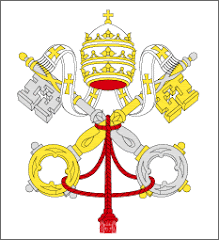
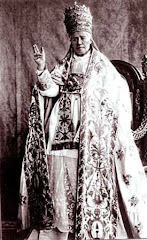
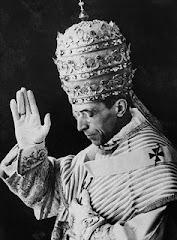

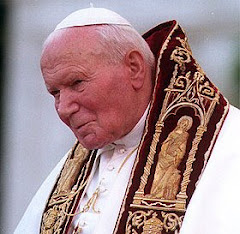
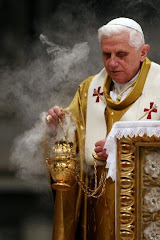













No comments:
Post a Comment